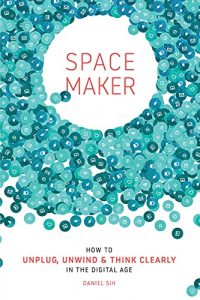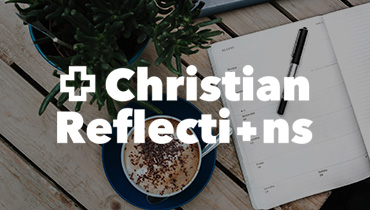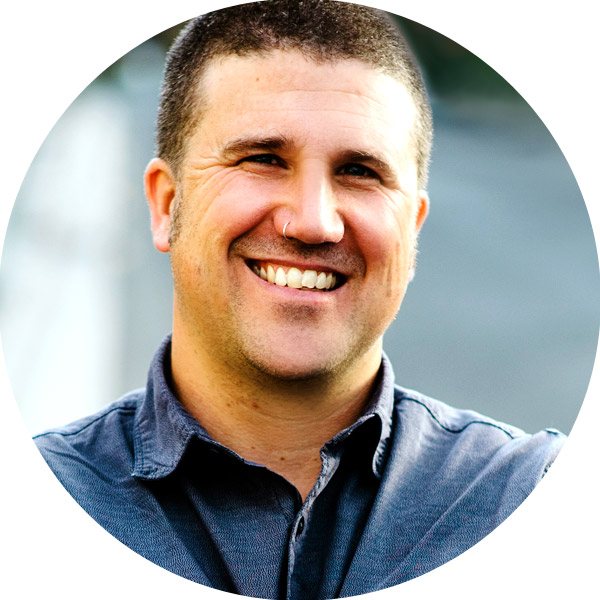August 25, 2021

Daniel and I have been friends for years, and he gave me a copy of his book, Spacemaker (at Wandering Bookseller, on Amazon, audiobook also available, narrated by the author). Fittingly enough, he gave it to me at a time when I didn’t have the space to get around to reading it. Knowing his excellent video course stuff, List Assassin and Email Ninja, and sharing a love for productivity stuff with him, I must admit I kept assuming it was a book about productivity… and perhaps where my head was at, felt less urge to read a good summary of stuff I already knew, so that probably slowed me down in getting to it. Actually it turns out it’s not about that stuff, but instead about digital hygiene and burnout and wellbeing. I finally got around to charging through the audiobook on double speed (my first double speed audiobook experience: a great way to get through things!).
The productivity books of the 2020s: not about being Highly Effective or Getting Things Done but Deep Work and Making Space
The book opens with a gut-punch story of female professional who was so addicted to work and digital activity she was hiding it from her husband, sneaking the phone into the bathroom to do emails on the toilet, pretending to have fallen asleep, when actually still using her iPad. A powerful opening illustration, a hook to draw you into the the purpose of the book. Wow.
It’s interesting to ponder what kinds of productivity books are needed in different moments. I’m sure Daniel would agree that the amazing insights of Stephen Covey’s 7 Habits of Highly Effective People or David Allen’s Getting Things Done are still very powerful and relevant books for people to read and implement.
But it’s interesting how increasingly the big need we have, is not just to manage priorities, or process our inboxes, but establishes disciplines and values to not be consumed by the constant barrage of TODOS and the constant stimuli of digital ephemera. To be effective and to get things done is not just to have a system… but to actually have values, habits and character to block out space to be present and reflective.
If Stephen Covey would say “Get the big rocks in place and then rest will fall into place”, and if David Allen would say “Process your all the ill-defined stuff and everything else will fall into place”, then Daniel Sih is saying “Make space in your life to live and think and be and all the rest will fall into place.” I guess that’s pretty close to the Stephen Covey Big Rocks thing, but with an emphasis not only on finding the right things TO DO.
Furthermore, what’s unique about the last twenty years, is the enormous increase in technological development and ubiquity. There have been an increased need for theologies and philosophies of technology since the industrial revolution, but the need has simply intensified and complexified. And so this book also provides us with a philosophy of technology.
Spacemaker: Paradigm, Principles and Practices
The first major section of the book, Paradigm covers ground that is probably familiar to many: the effect that over-use of technology has on our minds, lives and communities; the way technology ends up controlling us; the way limitations and love are vital to our wellbeing. This is a good summary of all the TED talks, Atlantic articles and seminars you’ve probably come across on these important topics.
Daniel covers a lot of ground in a clear and accessible way. This section would serve as a great primer for high schoolers and young adults needing to be become more aware of these issues.
The next two sections are practical advice: providing Principles (Set Limits, Plan Patterns, Assign Rest, Cultivate Community and Embrace Silence) and then Practices (Start with Holidays, A Day to Think, Digital Detox, Weekly Day of Rest, Daily Refresh, Daily Pause). His many years of work as a consultant and a pastor makes Daniel very good at setting realistic goals, often emphasising not to try to do everything at once; and encouragement the formation of sustainable habits, urging the perseverance with a new resolve for four weeks.
He is also great at stressing the many differences in life, culture and personality that mean there is not a one-size-fits-all for these things.
These sections are so full of great wisdom and practical ideas I could imagine returning to them multiple times in my life, and certainly would commend them to anyone.
Daniel is an entrepreneur and a church leader and a consultant and a geek. He knows all about productivity and effectiveness and work hacks and apps. He’s a great communicator, storyteller and diagram-drawer. He draws in a lot of his own personal story, a bunch of insights and research from various sources and stories from his consultancy work. He also occasionally incorporates spiritual insights and patterns from the Christianity and church life, in a way that I believe would still be accessible to people whether or not they were Christians.
Some of my take-homes
I found a lot in Spacemaker told me why things I was already doing was good and healthy. So there was something affirming and strengthening in that. Knowing what and why something works also makes it easier to teach to others! But here were a few stand out little things along the way that I took note of:
- Daniel mentions putting your phone on greyscale mode several times, something I’d never thought of before. The idea is it makes the phone less alluring for lazy checking. I liked the sound of that one. Turns out on a Pixel phone this option is buried under ‘Bed time’ mode, which is dumb. Anyway, I’ve set it up now and will see how I get on.
- It pointed to some research that found that passive social media use (doom scrolling, idle browsing) was worse for mental health than active social media use (liking, commenting). There you go! I’ve always had a largely positive relationship to social media, finding it a positive and stimulating thing in my life, overall. Perhaps this explains why? Social media has functioned more as an actual community to me?
- Reinforcement of ‘Deep Work’ type mindset. I’d read Cal Newport’s Deep Work last year, after someone reviewed it in staff meeting and I found it really helpful as a big picture outlook. Spacemaker reinforced that from a different angle, more of a spiritual, personal focus rather than a ‘be an amazing genius’ emphasis.
- It was nice to have Daniel point out how silence and solitude can have many expressions. At one point Daniel acknowledges that riding your bike can be a context for silence and solitude. Yes! So many mystical books seem to suggest you have to be sitting in a room, or by a waterfall, all dressed in white with some kind of oil burner scenting the air. But I’ve thought for quite a while how meditative exercise is for many people (and other stuff too). Nice to have someone say it.
Some minor quibbles
- I feel like the book suggests that those who create technology dictate how it functions. The book rightly warns us that we should be aware of the assumptions and attractions that are built into technology, and how they shape us without us realising it. However, I think it was a little naïve at this point. Philosophies of technology (and culture, more generally) tell us that culture and technology, the more complex they are, tend to take on a life of their own. So Facebook doesn’t function in my life the way Mark Zuckerberg might like it to, anymore than biblical theology always works its way out in culture according to God’s will. Daniel is right to warn us against thinking technology is somehow passive and neutral, but misleading to suggest that there is one authorial purpose to technology.
- The spiritual disciplines and biblical stuff got my eyebrows raised several times. Sometimes it was stretching the Bible passage beyond what I think is justified. Sometimes it’s trying to find a biblical case for practices of silence and solitude… when maybe it’s not really that explicit at all. Doesn’t mean these practices aren’t good or healthy… just that there’s not always deep biblical justification for them. And that’s ok.
- More examples and patterns of social connectedness. Daniel tells some amazing stories about the particular way his family and his church live out community life. Super cool. But maybe the book could do with a few more examples that weren’t so… ideological? Full package?
Who’s it for?
This would be a good book for you to read and reflect on if you are wanting to have a good look at the overall patterns of their life and work, with a particular focus on the unwelcome ways that technology is affecting them.
Daniel really has come up with a very helpful and healthy book for individuals, parents, leaders, pastors. In fact, I could imagine doctors, counsellors and psychologists pointing burned out patient to this as a workbook for building healthy patterns. As someone who gives a lot of my time to discipline and mentoring young people and young leader, as well as coaching and supporting experiences leaders, this will be a book I will be recommending and giving away a lot, I think!
Spacemaker website
Spacemaker at Wandering Bookseller, on Amazon (audiobook also available, narrated by the author)



